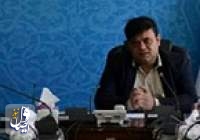What the author suggests as an effective and side-effect-free prescription for citizens in the field of media literacy is media literacy education and gaming within the family through the active participation of family members in the process of recognizing, receiving, and disseminating media messages.
- Nvidia dethrones Tesla as Wall Street's most traded stock
- President Raisi tours iHiT exhibition of Iranian technology products
- Could AI carry out coups next unless stopped now?
- Family-oriented media literacy education, an evolutionary branch of academic media literacy education
- that 'Oumuamua's speed-up was due to the release of hydrogen gas as the comet warmed up in the sunlig
- Elon Musk showed off on Friday a prototype of its humanoid robot Optimus
- The Chinese government has approved construction of the world’s largest pulsed-power plant by 2028
- China finds unknown mineral in lunar soil samples
- China looks for silver lining in latest US restrictions on artificial intelligence chips
- Better photosynthesis increases yields in food crops







